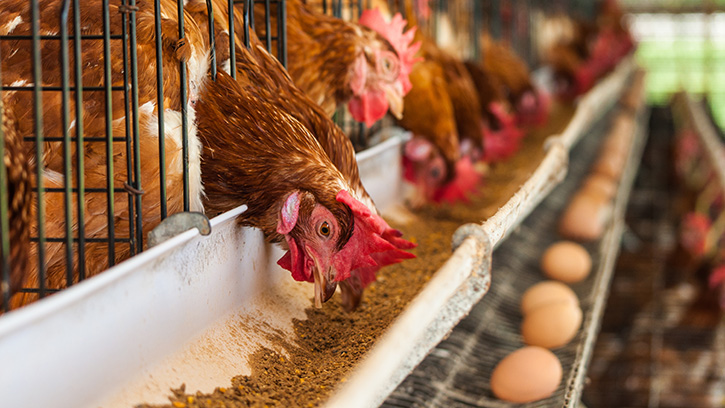The first formal standard to define what cage-free eggs are, and which eggs and egg products can be marketed as cage-free, has now been released in China. The new nationwide standard on the production, distribution and sale of cage-free eggs was released in late October by the China Chain Store and Franchise Association (CCFA), the state-affiliated trade group that serves as the official representative of China’s retail industry.
“China is now encouraging egg producers to adopt cage-free systems to produce eggs that are higher in quality,” said Chu Dong, Vice President of the CCFA. “Any egg producers or food companies including retailers, restaurants, FMCG and hotels that meet the standard after being verified by CCFA will be entitled to mark ‘cage free’ on their packaging or advertising materials.”
Established in 1997 as a state-affiliated national industry trade group, the CCFA represents over 460,000 chain stores in the food sector in China, including international brands such as Walmart, Carrefour, Starbucks and Burger King as well as domestic giants like Yonghui supermarket, Jinjiang Hotels and Haidilao restaurant. The cage-free standard was jointly developed by the CCFA and the China Animal Health and Food Safety Alliance (CAFA), in cooperation with IQC, a farm certification consultancy, and leading egg producers.
The decision to develop the standard was driven in large part by the rise in corporate cage-free egg commitments and increasing demand for cage-free eggs. Over 70 leading food companies in China have committed to using only cage-free eggs, including domestic players such as retailers city’super and City Shop and food service brands A-Star and Riverside Grilled Fish, as well as international companies active in China including METRO, ALDI, Costco, Burger King and others.
“With the release of the new cage-free egg standard, food companies in China can have even more confidence in making and meeting commitments on this issue,” said Mutzu Huang, Program Manager at Lever China, a Shanghai-based consultancy that works with companies on setting cage-free egg policies in the country. “Chinese consumers are keen to know whether the foods served on their table comes from humane and safe supply chains. The new standard will make it clearer to consumers how their egg products were produced.”
A recent research report from Lever China found that cage-free egg production is set to increase by 1.8 billion eggs annually. The number is expected to rise to 3 billion as additional corporate commitments are made in the next few years. Seven of China’s twenty largest egg producers now either offer cage-free eggs or are in the process of building out cage-free production in response to the growing demand.
The new cage-free egg standard was developed based on international standards and tailored to the Chinese market. It provides guidelines on not only housing and animal welfare but also on food safety, in order to safeguard the rights of consumers and food companies and provide added assurance on egg production.


